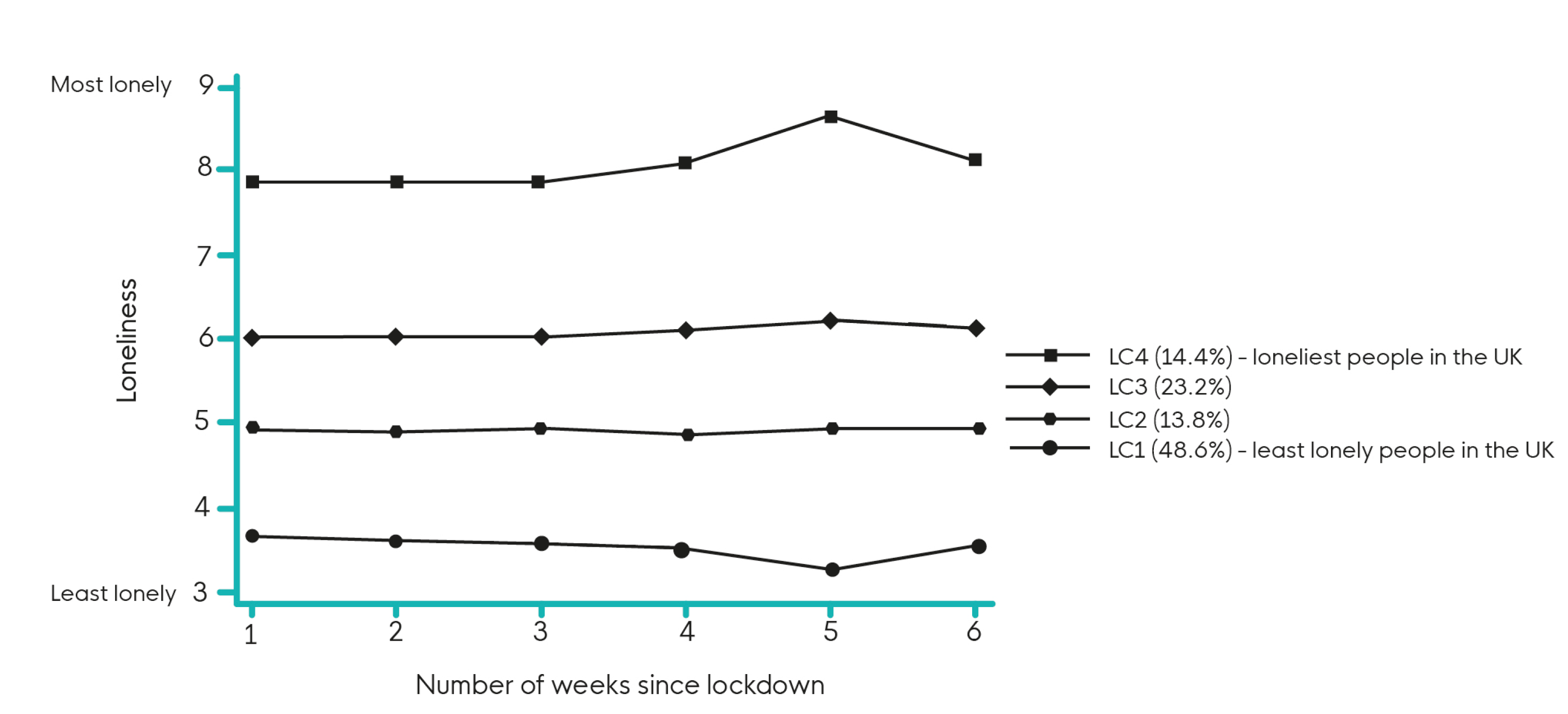Today we publish How has Covid-19 affected loneliness? This briefing highlights findings from the Covid Social Study, as part of our ongoing data analysis work with Dr. Daisy Fancourt and her team at University College London. This study has surveyed over 70,000 people since March 2020, asking different questions about their experiences and wellbeing over the past few months, including asking people about loneliness.
Since lockdown in the UK started towards the end of March, the way that we interact with friends, family and colleagues have been profoundly altered. Most aspects of social life were put on hold with the closure of non-essential shops, pubs and restaurants, community venues and theatres. Sporting and music events were cancelled. So with all this distance created in our social lives, how lonely did this make us feel?
More bored, less happy, loneliness unchanged
The answer may be somewhat surprising. Weekly polling data shows that in the UK, people got more bored and scared and less happy when lockdown came into force, but on average, there was no big increase in loneliness. The ONS estimate 5% of people are often or always lonely in the UK, this was the same pre and post-lockdown.
The chart below from the Covid Social Study demonstrates the importance of looking beyond the average.
- The least lonely people in the population actually got less lonely in the weeks following lockdown (the bottom line in the chart).
- Living with others or in a rural area, and having more close friends or greater social support were protective factors.
- Loneliness increased over this period for people who already reported feeling lonely prior to lockdown (the top line in the chart).

Loneliness risk factors remain the same
The study also found that the people most at risk of loneliness were the same during the lockdown period as they were before. This includes people who are:
- young
- living alone
- on low incomes
- out of work
- living with a mental health condition.
Being alone does not mean being lonely
Our conceptual review of loneliness identified the important differences between isolation and loneliness. Loneliness is not about being alone, but when the quality and quantity of relationships people have do not not meet their hopes and desires.
For young people in particular, loneliness can be felt particularly acutely, where there is likely to be a desire and expectation for this to be a time in their lives when they will build personal, intimate and professional relationships. Since Covid-19, the usual opportunities for young people to make and build relationships has not been available.
The research found that being a student in particular, where people may expect and hope to be part of an active study body and university community, was a more important risk factor since Covid-19 than previously.
Want to find out more about loneliness?
You can check out our section on the wellbeing impacts of loneliness. And sign up to receive a notification when new research is published.
